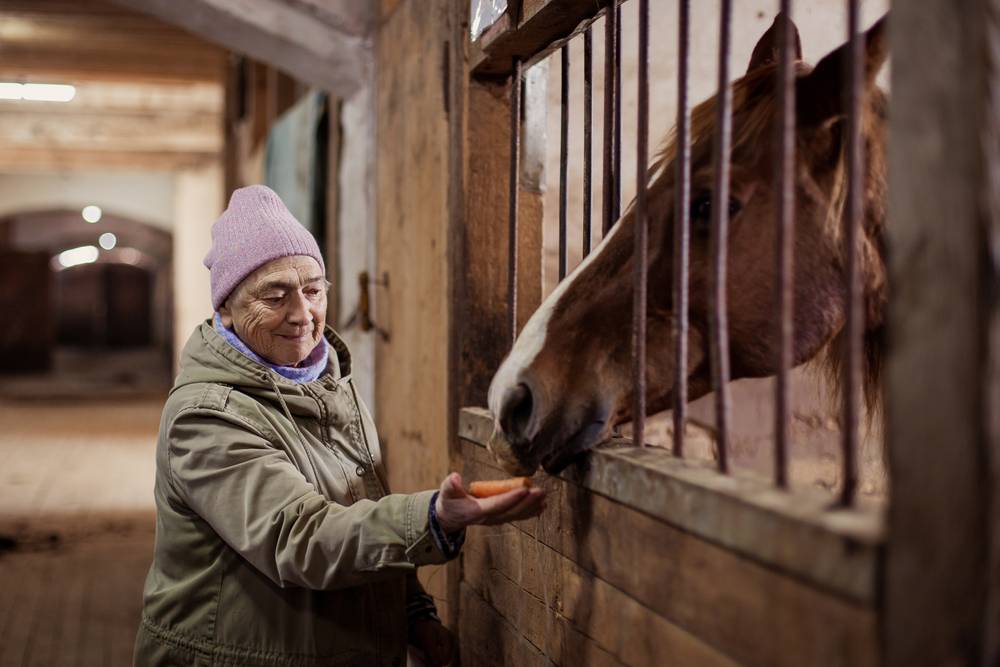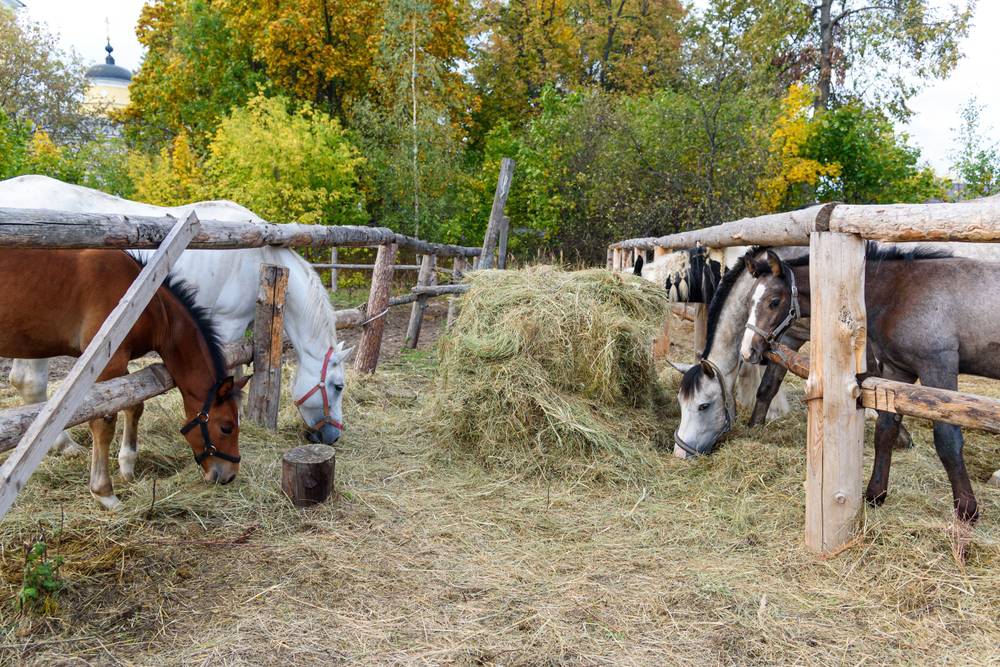
As horses age, their nutritional needs change. Proper nutrition is crucial for the health and well-being of senior horses. It can help prevent or manage age-related conditions such as weight loss, dental problems, and muscle wasting. Let’s discuss the key considerations for feeding senior horses. We will provide some practical tips for optimizing their nutrition.
Why Is Nutrition Important for Senior Horses?
Senior horses’ metabolism slows down, and they may become less active. This can lead to weight gain and an increased risk of obesity-related conditions such as laminitis. Senior horses also tend to have dental issues that can make it difficult for the equines to chew and digest their food properly. Older horses may suffer from muscle wasting, which can be caused by a lack of proper equine nutrition or physical inactivity. All of these crucial factors highlight the importance of providing senior horses with a well-balanced diet that meets their unique nutritional needs.
Feeding Older Horses – The Ultimate Guide
The total diet for aged horses must contain around 12-14% of quality protein, along with an adequate amount of vitamins and minerals. The feeding program should also be tailored to each horse’s individual needs. On average, the total feed should include 1.5 – 2.0% of horse’s body weight. Take into consideration any health issues they may have. It is important that the feeding program provides enough calories to prevent weight loss without causing excessive weight gain.
The specific nutritional requirements of senior horses depend on various factors. These include their size, breed, body condition, and level of activity. However, there are general guidelines you can follow when feeding your senior horse:
- Provide plenty of roughage: Roughage (e.g. hay, pasture) should make up the majority of your senior horse’s diet. It provides essential fiber and helps keep their digestive system healthy. Choose high-quality hay that is appropriate for your horse’s age and condition.
- Consider a senior feed: Specialized senior feeds are formulated to meet the nutritional needs of aged horses. They often contain added vitamins, minerals, and amino acids to support healthy aging.
- Don’t overfeed: It’s important to monitor your senior horse’s body condition and avoid overfeeding. Obesity can put extra strain on their joints and increase the risk of laminitis.
- Supplement as needed: Depending on your senior horse’s individual needs, you may need to supplement their diet with additional nutrients. For example, senior horses with dental problems may benefit from a feed that is specifically designed to be easier to chew.

Tips for Optimizing Horse Nutrition for Senior Horses
- Provide small, frequent meals. To help an older horse with dental problems, consider dividing their daily ration into smaller, more frequent meals. This can make it easier for them to chew and digest their food.
- Offer a variety of feeds. Mixing up your senior horse’s diet can help keep them interested in their food and prevent boredom. Consider offering a variety of roughage sources (e.g. hay cubes, grass hay, pasture, haylage) and different types of senior feeds.
- Keep fresh water available. It’s important to make sure your senior horse has access to fresh, clean water at all times. Dehydration can be a serious concern for older horses, especially during hot weather.
- Monitor body condition. Regularly check your senior horse’s body condition and make adjustments to their diet as needed. A body condition score of 5-7 on a 9-point scale is ideal for most senior horses.
- Consult a veterinarian or equine nutritionist. If you have concerns about your senior horse’s nutrition or are unsure what to feed them, it’s a wise idea to consult a veterinarian or equine nutritionist. They can provide personalized recommendations based on your horse’s specific needs. An equine expert will help you develop a feeding plan that meets their unique requirements.
Some additional considerations for horse nutrition for senior horses include:
- Incorporating antioxidant-rich foods into their diet, such as carrots, apples, and blueberries, to support immune health.
- Providing a source of omega-3 fatty acids, such as flaxseeds or fish oil, to support joint health.
- Using a feed that is low in starch and sugar. As older horses are more prone to developing insulin resistance and laminitis.
- Ensuring that your aging horse has access to a mineral block or loose minerals to meet their daily requirements for essential minerals.
In case your horse can NOT eat hay (caused by dental problems):
- feeding a hay replacer such as grass pellets or soya hulls instead might be an option.
- adding probiotics to their diet in order to support their microbial balance and normal digestion.
- including herbs such as yucca, devil’s claw, turmeric, garlic, ginger, and slippery elm in their diet in order to support joint health.
- providing adequate amounts of salt on a daily basis for electrolyte balance.
What Fruits Are Allowed for Senior Horses?
Generally, feeding fruits to horses is not recommended due to their high sugar content. If your horse has a healthy metabolism and digestive system, feeding them small amounts of low-sugar fruits such as apples or berries can be beneficial for them. It’s best to check with your vet about the amount of fruit you should feed as part of your horse’s diet.
What Vegetables Can I Give My Senior Horse?
Feeding vegetables is a great way to supplement your horse’s diet, as they are rich in vitamins and minerals. Carrots, squash, sweet potatoes, and parsnips can be beneficial for senior horses. It’s important to feed vegetables in moderation; too much of either can cause digestive issues or even colic.
Conclusion
By following these recommendations, you can help your senior horse maintain good health and prolong their longevity. However, feeding a senior horse is not always simple. As with any feeding plan, it’s best to consult with your equine nutritionist for advice on the best feeding practices for your companion. Pay attention to your horse’s behavior and weight so you can make adjustments as necessary.
